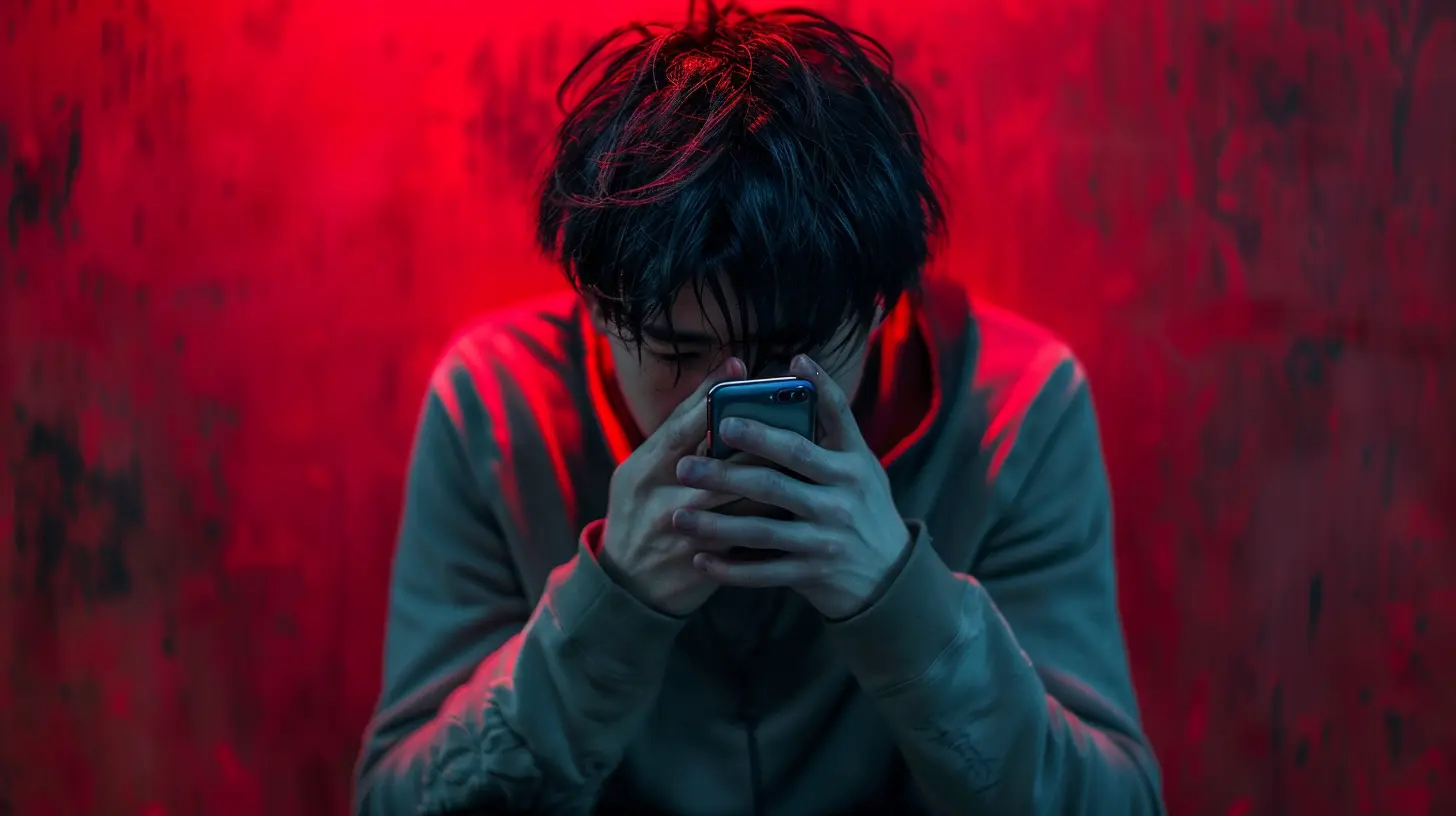Nomophobia: Living with the Fear of Being Without a Smartphone
8 June 2025
Have you ever felt anxious when you misplaced your phone, even for a few minutes? Or maybe you panic when your battery hits 5% and there's no charger in sight? If so, you're not alone. These feelings are part of a growing modern-day phenomenon called nomophobia—the fear of being without a smartphone.
As technology becomes more ingrained in our daily routines, dependence on smartphones has skyrocketed. But when does reliance turn into an actual phobia? And what can we do about it? Let’s dive into the world of nomophobia and understand its impact on mental health, relationships, and daily life. 
What is Nomophobia?
Nomophobia is short for "no-mobile-phone phobia." It’s the excessive fear or anxiety of being without a smartphone. Whether it’s losing signal, running out of battery, or simply forgetting your phone at home, this phobia can trigger real distress.While it’s not officially classified as a mental disorder, psychologists consider it a growing behavioral issue that reflects our deep emotional attachment to our devices.
Is It Really a Phobia?
A phobia is typically an irrational fear that causes stress and disrupts daily life. Nomophobia fits this definition because it leads to anxiety, panic, and even withdrawal symptoms when separated from a smartphone.Think about it—people experience physical reactions like sweating, restlessness, or an increased heart rate when they can’t access their phones. That’s more than just a mild inconvenience; it’s a real issue. 
The Signs and Symptoms of Nomophobia
Wondering if you might have nomophobia? Here are some telltale signs:1. Panic When You Forget or Lose Your Phone
If the thought of leaving home without your phone sends you into full-blown distress, nomophobia might be at play. Many people feel uneasy or anxious when they don’t have their devices, but extreme anxiety signals dependence.2. Constantly Checking Your Phone
Do you check your phone every few minutes, even when there are no notifications? The compulsive need to keep your phone close and glance at the screen frequently is a key indicator.3. Feeling Isolated Without Your Device
Smartphones connect us to the world, but if you feel lost or disconnected without yours—even for a short time—it could be a problem.4. Avoiding Situations Where Phones Aren’t Allowed
If you actively avoid places like movie theaters, flights, or important meetings because you can’t use your phone, it’s a red flag.5. Experiencing Anxiety When Your Battery is Low
Do you get nervous when your phone’s battery is running low? If a dying battery feels like an impending emergency, it’s a sign of over-dependence.6. Keeping Your Phone Within Arm’s Reach at All Times
Sleeping with your phone under your pillow or carrying it everywhere—even to the bathroom—suggests an unhealthy attachment.
What Causes Nomophobia?
Several factors contribute to the development of nomophobia:1. Social Connectivity Pressure
We live in an era where being "always available" is expected. Smartphones keep us connected to friends, family, work, and social media. The fear of missing out (FOMO) drives the need to constantly stay online.2. Dopamine and Instant Gratification
Every notification, like, or message releases dopamine, the feel-good neurotransmitter. Over time, this creates a cycle of dependency, similar to how people get addicted to gambling or junk food.3. Psychological Dependence
For many, smartphones are a source of comfort. Whether it’s scrolling through social media, playing games, or watching videos, people turn to their phones as a coping mechanism for stress, anxiety, or boredom.4. Fear of Isolation
Phones are our digital lifelines. The idea of being unreachable or disconnected can make people anxious, especially in emergencies. The fear of missing important calls or texts adds to this dependency.5. Work and Productivity Pressure
Many jobs require constant online presence. With work emails, instant messages, and virtual meetings, professionals feel obligated to stay glued to their phones—not just during work hours but even after.
The Impact of Nomophobia on Mental Health
Nomophobia isn’t just an inconvenience—it can have serious effects on your mental and emotional well-being.1. Increased Anxiety and Stress
The constant need to check your phone can cause chronic stress. Worrying about notifications, messages, or missing calls adds to daily anxiety levels.2. Sleep Disruptions
Many people use their phones right before bed, and blue light exposure messes with melatonin production, making it harder to fall asleep. Plus, waking up to check notifications in the middle of the night disrupts deep sleep cycles.3. Decline in Real-Life Social Skills
If you’re always glued to your phone in social situations, your ability to engage in face-to-face conversations may weaken. Relationships can suffer when people prioritize screens over real-world interactions.4. Reduced Attention Span
Phones provide endless distractions. Constant notifications and social media scrolling can make it harder to focus, lowering attention spans over time.5. Physical Health Issues
Excessive phone use is linked to poor posture (tech neck), eye strain, headaches, and even increased sedentary behavior, which impacts overall health.Combating Nomophobia: How to Overcome It
If nomophobia is taking over your life, here are some practical ways to regain control:1. Set Boundaries with Your Phone
- Designate phone-free times, like during meals or before bed.- Use the "Do Not Disturb" feature to limit distractions during work or relaxation.
2. Reduce Screen Time Gradually
- Start by cutting down small chunks of phone usage each day.- Replace phone habits with offline activities like reading or exercising.
3. Turn Off Unnecessary Notifications
- Notifications are designed to keep you hooked. Disable non-essential alerts to reduce the urge to check your phone constantly.4. Keep Your Phone Out of Reach
- Charge your phone in another room while sleeping or working.- Use a real alarm clock instead of relying on your phone.
5. Practice Mindfulness
- Engage in activities that keep you present, like meditation or journaling.- Focus on real-life conversations instead of multitasking with your phone.
6. Challenge Yourself with a Digital Detox
- Try going without your phone for a few hours or an entire day.- Spend time engaging in hobbies, nature walks, or socializing without screens.
7. Seek Professional Help If Needed
- If the fear of being without your phone is severely impacting your life, talking to a therapist can help address underlying anxiety or dependence.Final Thoughts
Smartphones are powerful tools, but when their presence (or absence) starts dictating our emotions, it’s time to reevaluate our relationship with them. Nomophobia is a real issue affecting millions, but the good news is that it's manageable.By setting boundaries, practicing mindfulness, and gradually reducing dependency, we can regain control and find a healthier balance between digital and real life.
So, the next time you feel that itch to check your phone—pause for a moment. Ask yourself: do I really need to, or is it just out of habit? Breaking free from nomophobia starts with small, intentional steps.
all images in this post were generated using AI tools
Category:
PhobiasAuthor:

Matilda Whitley
Discussion
rate this article
2 comments
Vance Jackson
Embracing life beyond our screens can lead to deeper connections and joyful experiences. Let’s challenge ourselves to enjoy the present without our smartphones!
June 20, 2025 at 4:04 AM

Matilda Whitley
Absolutely! Embracing life offline fosters genuine connections and enhances our overall well-being. Let's challenge ourselves to live in the moment!
Odessa McGhee
Nomophobia: The ultimate phone-nection anxiety!
June 10, 2025 at 4:34 AM

Matilda Whitley
Absolutely! Nomophobia highlights our deep dependence on smartphones and the anxiety that arises from being disconnected. It’s a modern reality many of us face.


